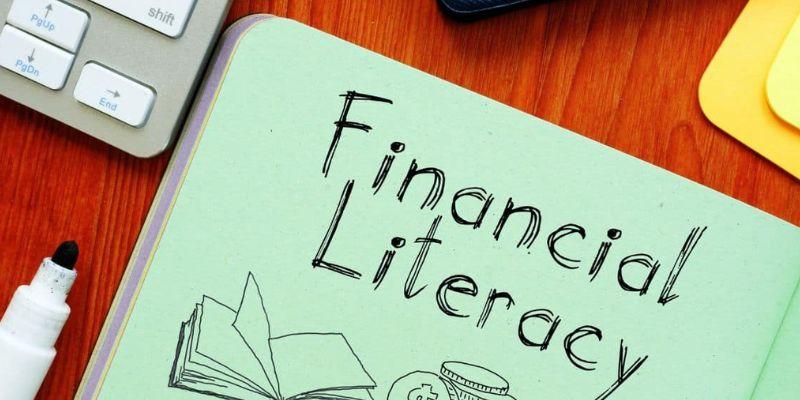Nowadays, students have particular difficulties with prudent financial management. Every buy, large or small, affects the way future possibilities present themselves. Early knowledge of money helps to simplify and reduce the anxiety associated with the path. Interesting tools, apps, and activities can help students acquire motivating skills from what might otherwise be tedious numbers.
Every effort to grasp money increases students' independence and self-assurance. Investigating these concepts enables students to get ready for success in any grade. What they learn today sets the groundwork for lifetime security. Financial literacy is about controlling your future with great power, not only knowledge. You will get insightful information on confidently and efficiently developing these abilities in this guide.

Understanding money well is a key component of financial literacy for students. It helps students understand spending, saving, and wise decision-making as well as related ideas. Many youngsters want goods but ignore spending limits. Understanding money enables you to strike a balance between your desires and necessities. Those who study financial literacy tend to become more confident in their financial decisions. It also helps them avoid financial mistakes.
Saving small sums helps to form patterns that progressively improve with money management tips for students. Students who plan their purchases believe they have control of their money. Before making unnecessary purchases, they can think carefully. Learning about cash also guides the creation of later financial objectives. Knowing how to handle finances teaches accountability and discipline; children can learn simple methods for organizing events or managing school supplies. Financial knowledge also prepares pupils for the rigors of adulthood.

Students can easily and contemporaneously grasp money using digital technologies. Users of online banking can view their balances from the convenience of their own homes, thereby eliminating the need to visit a bank. Mobile apps enable students to utilize digital tools for budgeting, allowing them to control their spending and savings effectively. Many of these schemes feature colorful charts that help individuals manage their finances effectively. Students can track their progress over time and set specific goals. Digital payments enable quick and secure transactions using a card or phone.
Furthermore, several systems provide explicit instructions on monitoring and saving expenses. These techniques help students develop responsibility by reminding them of objectives or bills. They acquire knowledge of safe passwords and internet personal information protection. Understanding fraud will enable you to prevent being taken advantage of and losing money. Furthermore, digital technologies allow friends to divide expenses more simply. Students find comfort, but they also need to be cautious about the use of technology.
Students' financial literacy enables them to plan effectively for major future obligations. Building savings now sets them up for unanticipated costs and disasters. Long-term economic success is based on effective money management. Students learn how to make informed decisions to avoid debt. Smart spending enables them to reach more ambitious objectives more quickly. Learning about investments helps you grow and generate more money. Early savings will help students get ready for college costs. Practical budgeting skills enable the control of finite resources without undue anxiety.
Additionally, promoting the development of an early emergency fund among students is a key aspect of financial literacy. This money offers stability in case unforeseen difficulties arise in life. Knowledgeable students may reasonably buy what they want. Planning also helps to avoid needless borrowing. Good financial knowledge gives one the confidence to handle adult responsibilities effectively. Strong habits formed now will provide lifelong stability and independence later.
Through regular money habits, students may develop financial literacy. Spending, even little sums like snacks or games, should be tracked. Writing charges enable kids to see trends in their decisions plainly. Saving some of an allowance helps young children learn discipline and responsibility. Students could strive for things like purchasing supplies or books. Reaching objectives boosts self-assurance and enhances the ability to make informed decisions. Before making a purchase, they can check prices to help them save money.
Opting for needs above desires increases better control over spending. Parents can also teach their children good money practices. Asking questions develops financial confidence and progressively increases knowledge. Learning great lessons comes from watching videos or reading straightforward essays. Students can work on planning before trips or events. They could discuss money with friends or teachers. Learning together makes financial education more enjoyable and easier to understand.
Staying safe financially means being wise and cautious every time. Students must refrain from disclosing their bank account information or passwords to unauthorized individuals. People are duped by fraudsters who make promises of rewards, gifts, or simple money. Students should never trust deals that seem too good to be true. Money should be protected by researching sources thoroughly before making any payment. Saving money in reputable banks or digital wallets is more secure. Students should not borrow money unless they know how they will repay it.
Unpaid debts can cause stress and problems later in life. Spending money responsibly helps students avoid unnecessary financial difficulties daily. Students should also exercise extreme caution when using internet purchasing sites at all times; visiting reliable websites shields against fraud or scams. Parents may help their children learn how to handle money safely. Asking questions before buying teaches them responsibility and safety from an early age.
Financial literacy empowers pupils to make informed decisions and achieve long-term success. It teaches boldness in financial management, awareness, and discipline. Learning money management guarantees freedom from pointless hardships, stability, and security. Early habit practice helps kids build a solid basis for adult life. Clearer futures depend on careful budgeting, averting scams, and sensible savings. In individual financial journeys, every little act increases independence and resiliency. Knowledge now guards against future difficulties. Students find stability in financial management by staying alert and continually learning. Those who get ready with solid financial literacy now will own the future.
 TOP
TOP
Essential retirement planning strategies with age-based benchmarks to secure your financial future and achieve your unique goals.
 TOP
TOP
Explore how 529 plans can support education at trade and vocational schools, offering flexibility and financial aid options.
 TOP
TOP
How 529 plans offer tax-free education savings, minimal financial aid impact, and key advantages for covering college costs.
 TOP
TOP
How to choose the best 529 plan with tips on tax benefits, investment options, and maximizing savings for your child's education.
 TOP
TOP
How the SAVE plan transforms student loan repayment with lower payments, interest protection, and faster forgiveness.
 TOP
TOP
Explore Los Angeles with our insider's guide. Discover landmarks, beaches, culture, neighborhoods, shopping, and entertainment
 TOP
TOP
Explore Sicily villa rentals with comfort and charm. Enjoy beaches, culture, and authentic Italian living on your escape
 TOP
TOP
Explore family-friendly vacationing in Bar Harbor with Acadia hikes, kid activities, waterfront fun, dining, and lodging options
 TOP
TOP
A parent’s guide to understanding, detecting, and managing bone tumors in children.
 TOP
TOP
Can't afford closing costs? First-time buyers: discover strategies, assistance programs, and negotiation tips to cover fees
 TOP
TOP
Prepare for the Annapurna Circuit with essential tips on training, gear, and safety to ensure an unforgettable Himalayan adventure.
 TOP
TOP
Top hiking trails near Denver, from stunning red rocks to serene alpine lakes. Plan your adventure in Colorado's breathtaking landscapes today!